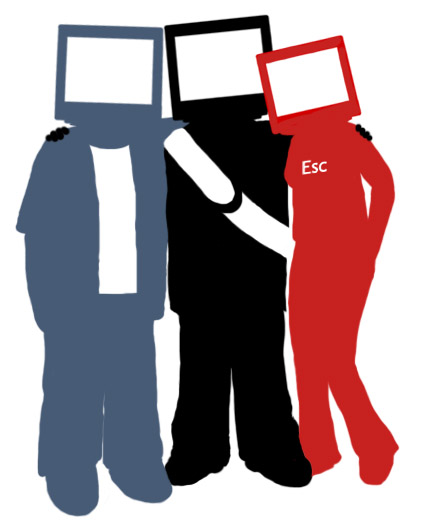
Hi, I’m a Computer
Inc. Magazine recently featured an article that highlighted a web designer’s outlook on life that I found superficial and unworthy of further thought when I read part of the piece’s title: “[…] Start treating people more like computers.” How could someone seriously take this idea and approach everyday conversation with it? We’re not computers. We understand one another. We can approach each other with this common knowledge. I started reading the rest of this article, however, because I know that it’s unacceptable to judge a book by its cover. And what happened? I became convinced that this approach might actually work (despite the way it sounds at face value). Hear me out.
So, this young man began taking a course in Ruby on Rails, a programming framework that allows tens of thousands of websites the ability to function worldwide. He wanted to be a better co-worker, a better designer, and overall, a self-sufficient businessman who didn’t have to rely on programmers to bring his ideas to life. The course offered more than just a way to improve his tech skills, though. On top of this expensive lesson, this man gathered that learning how to program was teaching him how to be a better communicator in general. Programming, as many IT workers understand, requires one to break ideas down to their very core. But this breaking down must occur before one can build those ideas back up. For instance, you couldn’t tell a computer to make you a meal without first telling it exactly what a meal is and exactly what a meal is not; a humbling experience to say the least. But the process of breaking ideas down and building them back up again is part of what being a thorough programmer, or thinker, is all about. Do you think you could explain to someone, or something, what a meal is who has never had a meal or heard of the word before? I would like to think I could do it before I would suffice it to say, “Sorry, but I guess this is just something you will never understand.”
It’s convenient to assume others already know what you’re talking about, but it’s inconvenient when others are faking the fact that they’re on the same page as you, or unable to catch up to the next chapter you’ve skipped to. Rather, be thorough. Assume nothing. Explain the core of whatever it is you’re talking about and build up – like you’re talking to a computer. Chances are you’ll make a deeper connection and keep the attention of your listeners much longer. After all, in the IT business, that is exactly what we need.

